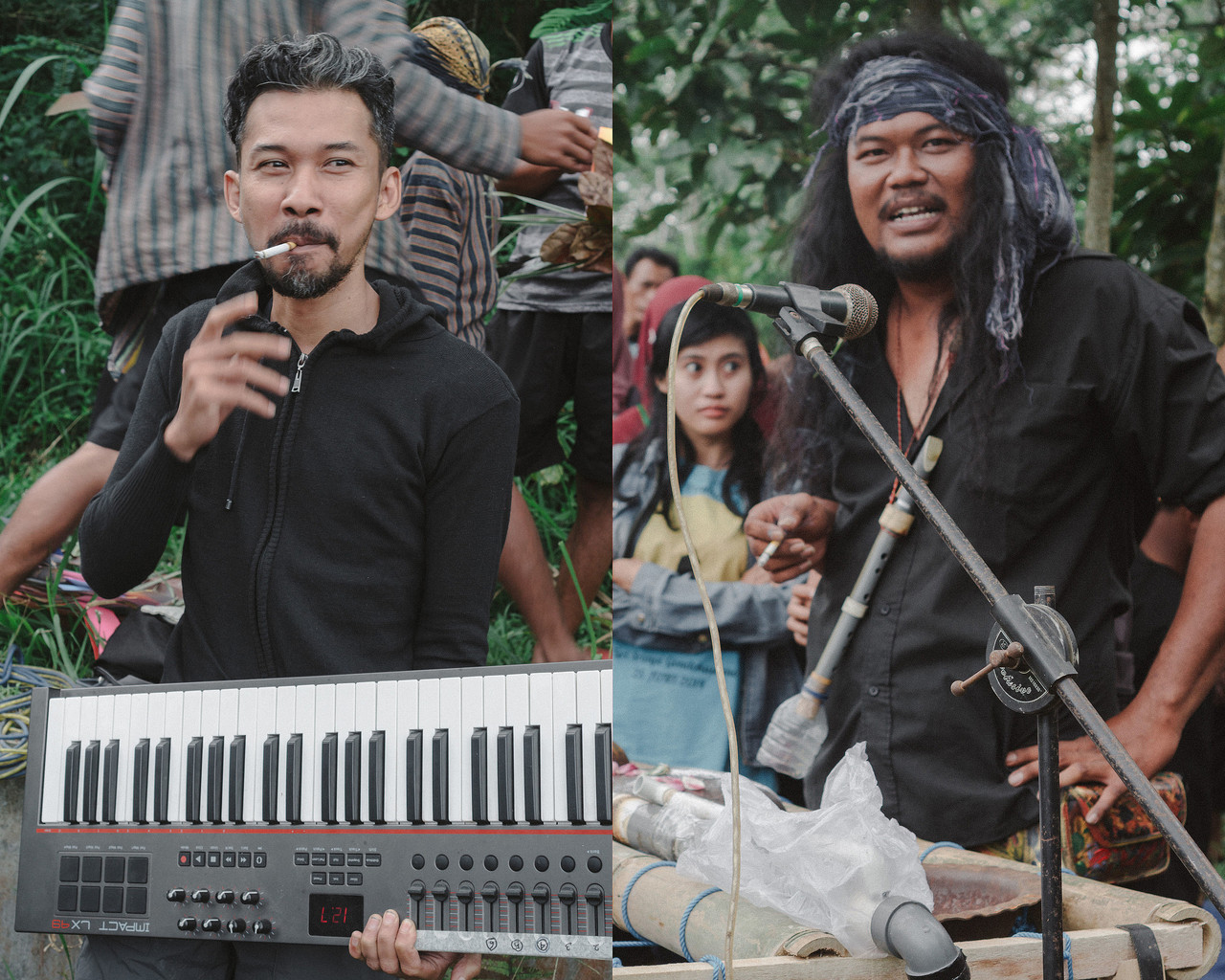
These dances draw on magic, shamanism, and animism to explore a history that is at times dark, chaotic, violent, and unjust. Such traditions have long served the people and their efforts at cultural resistance, and are still relevant in political struggles today.
Syncopated electronic rhythms frolic beneath the meanderings of homemade instruments built from waste materials. Metallic percussion that is as trance-inducing as it is bellicose steps into dialogue with lilting melodies that gust out of makeshift wind instruments. The music of Raja Kirik inhabits a wide emotional breadth, cycling from disappointment to anger to loneliness. The result of extensive artistic research into the island’s history, Raja Kirik considers the violence, oppression, and resistance that has shaped Java. At the time of Dutch colonialism, trance dances served the Javanese as an expression of their ardent desire for freedom and their rejection of colonial rule.
Ariendra and Pribadi show how music, dance, and ritual still provide narrative means today to assert oneself against foreign rule and violence. These explorations can be heard on their eponymous 2018 album on Yes No Wave, as well as the 2020 follow-up record, Rampokan, via Yes No Wave and Nyege Nyege Tapes.
Rampokan, by Raja Kirik
Rampokan, by Raja Kirik